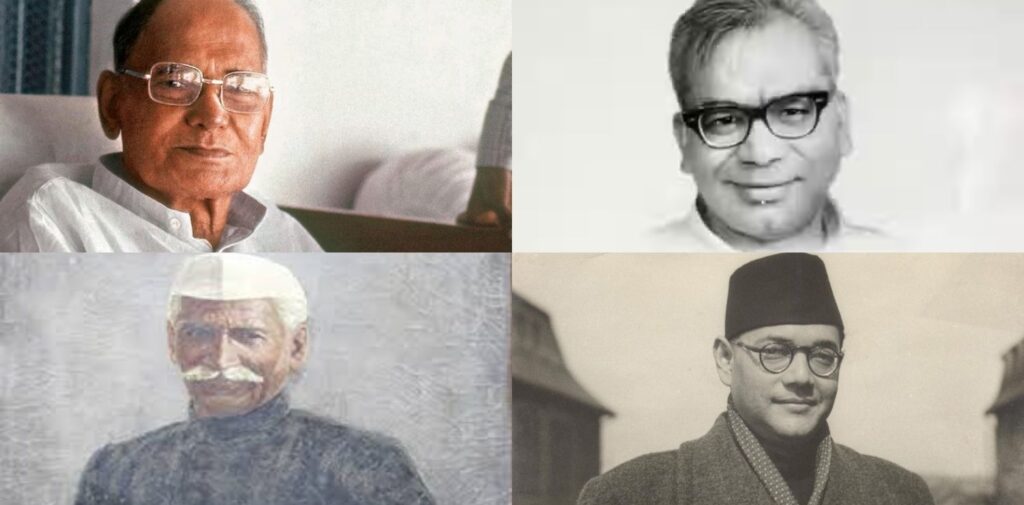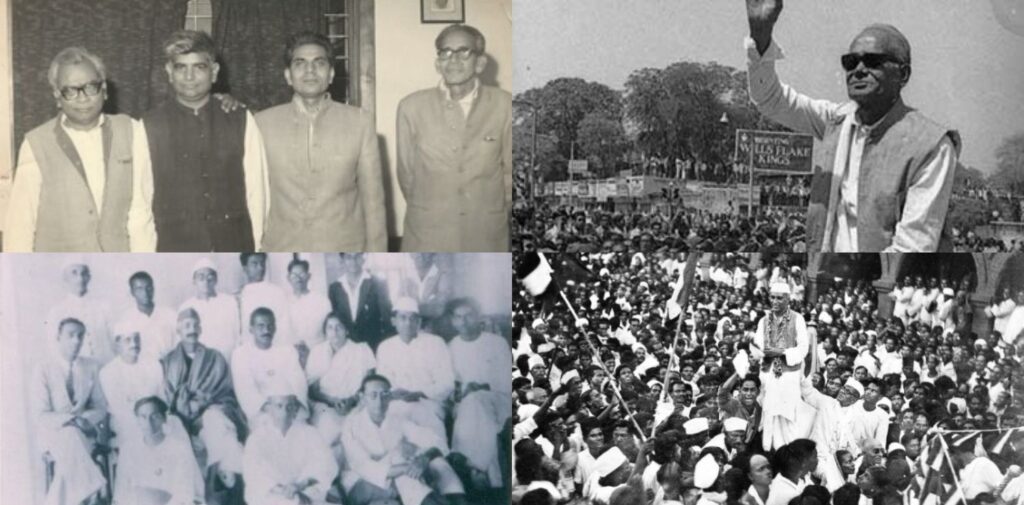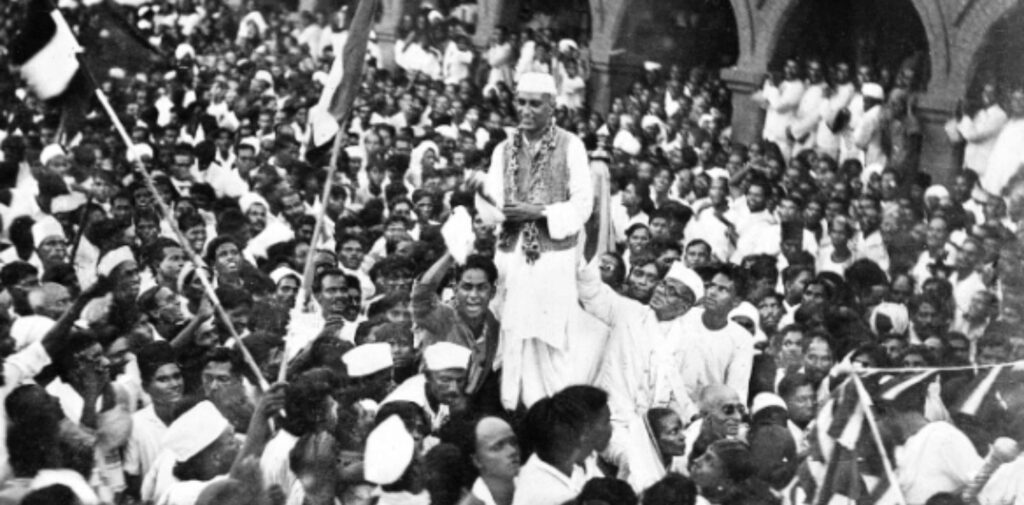India’s struggle for independence was not just one of political movements and protests, but also of ideological battles. While the Indian National Congress (INC) played a significant role in mobilizing people against British colonial rule, different factions within the party emerged over time, each with its own vision for India’s future. One such important faction was the Congress Socialist Party (CSP), which brought a unique socialist perspective to the Indian freedom struggle.
The Congress Socialist Party, formed in the early 1930s, played a vital role in shaping India’s political landscape, particularly in pushing for social justice, economic equality, and the rights of the common people. While the CSP eventually merged with the Indian National Congress, its impact on India’s independence movement and the post-independence democratic framework remains undeniable.
Formation of the Congress Socialist Party
The Congress Socialist Party was formally founded in 1934 as a faction within the Indian National Congress. Its formation was largely driven by the growing dissatisfaction among younger members of the Congress who felt that the Congress leadership, particularly Mahatma Gandhi and Jawaharlal Nehru, was not giving enough emphasis on social and economic reforms.
Many of these Congress leaders were inspired by the rise of socialist movements across the world, especially in Russia, where the Bolshevik Revolution had successfully overthrown a monarchy and promised equality for all. In India, these younger leaders felt the need for a political ideology that not only focused on securing independence from British rule but also addressed the pressing social issues of poverty, inequality, and exploitation.
The Congress Socialist Party emerged as a platform to put forward socialist ideas within the broader struggle for independence. Key figures like Jayaprakash Narayan, Ram Manohar Lohia, Acharya Narendra Dev, and Subhas Chandra Bose were associated with the CSP. They were inspired by Marxist and socialist ideas and believed that India’s future could not be secure unless there was a radical change in its social and economic structures.

Objectives of the Congress Socialist Party
The Congress Socialist Party had a clear vision for India’s future, which went beyond mere political independence. Some of its core objectives included:
- Social Equality and Justice: The CSP sought to address the social inequalities that plagued Indian society, including the deeply entrenched caste system, gender discrimination, and economic exploitation of the masses. It wanted to create a society where all people, regardless of their caste, class, or gender, had equal opportunities and rights.
- Economic Redistribution: The CSP was committed to promoting economic equality. It advocated for the nationalization of key industries, land reforms, and a more equitable distribution of resources. This was in stark contrast to the capitalist approach that many of the Congress leaders, including Gandhi, followed at the time.
- Worker and Peasant Rights: The CSP sought to empower the working class and peasants, who formed the backbone of India’s economy but were often exploited by both the British and the Indian elites. The party wanted to bring their issues to the forefront and work for their rights and welfare.
- End to British Imperialism: Like the Congress, the Congress Socialist Party was also committed to the goal of complete independence from British colonial rule. However, it believed that independence would be incomplete without substantial social, political, and economic reforms.

Key Contributions of the Congress Socialist Party
The Congress Socialist Party’s impact on India’s freedom struggle was profound, and its contributions helped shape the direction of the country’s post-independence policies.
- Pushing for a Comprehensive Freedom Struggle: While the INC primarily focused on political independence, the CSP emphasized that true freedom could only be achieved when social and economic justice was secured for the common people. It expanded the scope of the freedom movement by drawing attention to issues like poverty, workers’ rights, and the exploitation of farmers.
- Participation in Major Movements: The CSP played an active role in major national movements like the Civil Disobedience Movement (1930-1934) and the Quit India Movement (1942). The CSP was particularly involved in the struggle for social rights, with many of its members leading protests against the British rule and demanding reforms to alleviate the suffering of the Indian masses.
- Influencing Key Figures: The Congress Socialist Party had a significant influence on major leaders in the INC. Jawaharlal Nehru, who was originally influenced by socialist ideas, was deeply connected to the CSP’s vision, even though he did not officially join the faction. Nehru’s economic policies after India’s independence, such as land reforms, industrialization, and the establishment of public sector enterprises, reflected many of the socialist ideals championed by the CSP.
- Strengthening the Youth’s Role in the Struggle: The Congress Socialist Party attracted a large number of young, dynamic leaders and activists who were disillusioned with the older, more conservative Congress leadership. The CSP’s rise highlighted the increasing involvement of youth in India’s struggle for independence, and its members played an instrumental role in mobilizing the masses.
- Formation of Post-Independence Policies: After India’s independence, many of the ideas promoted by the CSP found their way into India’s democratic framework. The focus on land reforms, the nationalization of key sectors, and the introduction of welfare policies for the marginalized sections of society can be traced back to the ideas advocated by the CSP.
Challenges Faced by the Congress Socialist Party
Despite its significant contributions, the Congress Socialist Party faced numerous challenges in achieving its goals.
- Internal Conflicts: The CSP was never a monolithic group. Its members often had differing views on the extent and nature of socialist reforms. Some leaders, like Jayaprakash Narayan, leaned towards a more moderate form of socialism, while others, such as Subhas Chandra Bose, believed in more radical socialist reforms. These ideological differences sometimes led to internal conflict within the party.
- Limited Support Base: While the CSP attracted a considerable number of intellectuals and activists, it struggled to build a strong support base among the masses, especially in rural areas. Its ideas, although revolutionary, often failed to resonate with the majority of people who were more focused on the immediate goal of independence rather than social and economic reforms.
- Pressure from the Congress Leadership: The CSP’s push for more radical reforms sometimes brought it into conflict with the broader leadership of the Indian National Congress. Figures like Mahatma Gandhi and Sardar Vallabhbhai Patel were more focused on non-violent methods of resistance and were not always in agreement with the socialist approach of the CSP.

Decline and Legacy of the Congress Socialist Party
Over time, the Congress Socialist Party merged with the Indian National Congress in 1948, following India’s independence. Despite the merger, many of the ideas and policies advocated by the CSP were incorporated into India’s post-independence political framework. The ideals of social justice, land reforms, and empowerment of the poor, which were central to the CSP’s vision, continue to influence Indian politics today.
Conclusion:
In conclusion, the Congress Socialist Party was an important faction in India’s freedom struggle that brought forward a radical, progressive, and socialist vision for the country’s future. It not only contributed to India’s independence but also helped shape the socio-economic policies that were crucial for building a just and inclusive nation. The Congress Socialist Party’s legacy lives on through the social and political reforms it championed, which continue to influence India even after more than seven decades of independence.




